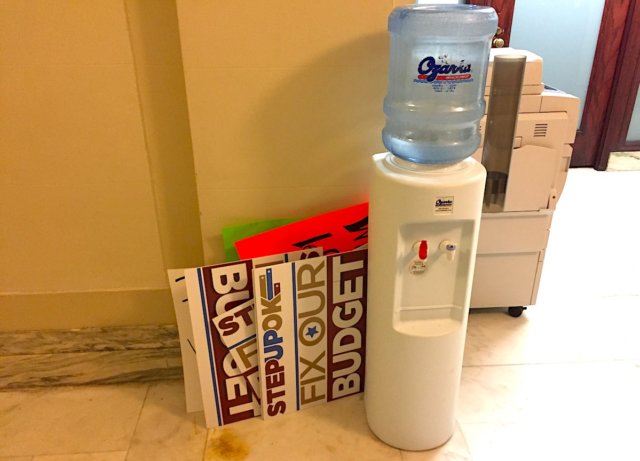
I went to Feb. 12’s teacher rally for the (eventually failed) vote on Step Up Oklahoma. I wanted to listen to our elected leaders and converse with pro-education allies.
At the rally, I spoke with a few stakeholders who were still withholding judgment on how Democrats and moderate Republicans should deal with our budgetary crisis. I was afraid that more education advocates would likely respond to the initial defeat of the tax package by forming a circular firing squad.
Sure enough, the Oklahoma City Public Schools criticized some of our best public servants for voting differently.
The OKCPS response following the failure of Step Up Oklahoma stated, in part:
It is unfortunate that some of our legislators, particularly those in our OKCPS delegation, are not supporting the Step Up plan to give our teachers a long-overdue raise.
The first (and likely last) legislative vote on Step Up’s package only addressed finances, and the worst part of that was its double taxation of wind in a cynical campaign against renewable energy. As Rep. Jason Dunnington (D-OKC) said on Flashpoint, although he reluctantly supported the tax package, state employees still need a pay raise.
Republicans and un-elected Democrats who were part of the Step Up coalition said they eventually offered House Democrats the inclusion of a state employee raise, but it ultimately did not bring more of Dunnington’s colleagues to vote in favor.
Let’s admit the real issue
The agenda known as Step Up should be seen for what it was: The economic elites who helped create Oklahoma’s ongoing budget shortfalls briefly stepped out of their offices to stop a catastrophe and head off a major election defeat in 2018. (I also suspect that many leaders who stepped out with the Step Up agenda were also saddened that we’ve allowed elites to usurp so much power.) These same elites accepted some progressive — but more regressive — tax increases in return for advancing their narrative that “reform” of inefficient governance can help get Oklahoma back on track.
We must counter the “reform” narrative with a governance that doesn’t invite international headlines such as The Economist’s recent What’s the Matter with Oklahoma? and The Washington Post’s Republicans Want to Turn the Entire Country into Oklahoma.
I’ll continue to be a team player and work with progressives, moderates and some conservatives who seek more than a Band-Aid on our state’s gaping wounds. Rather than blame each other, let’s admit that the real issue we’re fighting over is the 2018 election.






















